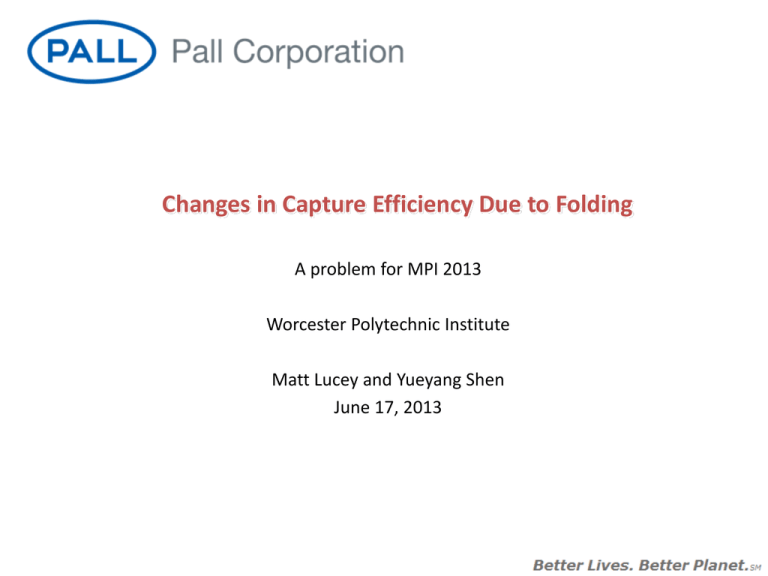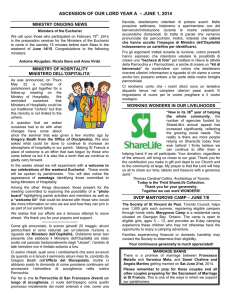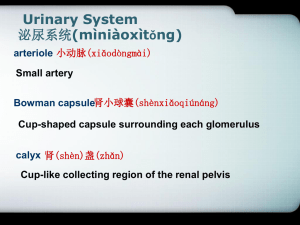Initial Presentation - Worcester Polytechnic Institute
advertisement

Changes in Capture Efficiency Due to Folding A problem for MPI 2013 Worcester Polytechnic Institute Matt Lucey and Yueyang Shen June 17, 2013 About Pall Corporation • Leader in Filtration, Separation and Purification • Scientific, technology and advanced engineering company • Founded in 1946 • Global Footprint • Over 10,000 Employees • $2.7B Annual Revenue year ending Aug. 2012 Capture Efficiency Lucey & Shen June 17, 2013 2 of 10 Cast and Expanded Membranes Pall's cast and expanded membranes have the following benefits. • • • • Micron efficiency rating from 100 µm down to ultrafiltration levels in liquids. Fast flow rates resulting from highly porous and asymmetric structures. Wide variety of polymer offerings. Excellent chemical resistance, thermal characteristics, and surface treatments. PTFE - Sample of Micro-Structure Capture Efficiency Lucey & Shen June 17, 2013 3 of 10 Media Applications Flat Sheet Devices Laid-Over Pleat (LOP) Cartridge Contributions to Variable Performance for the Current Problem • • • • • Pre-stress of media during production Plastic deformations from pleating Creep – Relaxation Temperature while Pleating – Phase Transition Thickness of Media / Membranes (stack-up) Capture Efficiency Lucey & Shen June 17, 2013 4 of 10 Problem Statements • How does large deformation of a membrane (PTFE) strip, with a 3D random ‘nodeand-fibril’ distribution, affect the capture of particles? • What happens over time due to stress relaxation? Assumptions • • • • • • • Mechanical Capture of Particles Anisotropic Material in 2 directions – thickness is uniform Non-Linear Material Behavior Random Pore Size Distribution – 20 nanometers Suspended Particles* are Mono-dispersed – 20 nanometers Drainage and Support layers have no effect on capture Drainage Material : Elastic Modulus = 50000 psi ; Poisson’s Ratio = 0** * Liquid is DI water with surfactant ** The true value for Poisson’s Ratio actually depends on the orientation of the strands Capture Efficiency Lucey & Shen June 17, 2013 5 of 10 A Brief Literature Survey • Hu-Hai Guo, et al. Journal of Applied Polymer Sciences, 116 (2010) 1124-1130 Described in details the two-step biaxial stretching operation for PTFE membrane preparation. Proposed a FEA model to study the stress and displacement distribution of the biaxially stretched PTFE membrane. Drawback: PTFE base sheet was considered mechanically isotropic. No structure information. • K Kurumada, et al. Journal of Membrane Sciences, 149 (1998) 51-57 Studied the morphology and its structure formation of the PTFE porous membranes fabricated through the steady-rate biaxial stretching operations. Drawback: Only explanation but no modeling given for the generation of structure of PTFE. • K Evans, et al. Journal of Physics D: Applied Physics, 22 (1989) 1883-1887 Described a simple model for the PTFE microstructure to account for its highly anisotropic and negative Poisson's ratio. Drawback: No allowance for material elasticity are considered in this model. Reason to mention: good beginning point to build PTFE structure model. Capture Efficiency Lucey & Shen June 17, 2013 6 of 10 A Brief Literature Survey • T Suwa, et al. Journal of Applied Polymer Science, 17 (1973) 3253-3257 Melting and crystallization behavior of the virgin PTFE was studied using a DSC. Reason to mention: heating and cooling process are involved during PTFE manufacturing and pleating process. • E Brown, et al. Polymer, 48 (2007) 2531-2536 Described temperature-pressure phase behavior of crystalline PTFE. PTFE shown to respond to uniaxial deformation by undergoing a crystalline phase transition. • Detailed Teflon PTFE bulk properties: http://www.rjchase.com/ptfe_handbook.pdf Capture Efficiency Lucey & Shen June 17, 2013 7 of 10 Problem Schematics What happens in the deformed region? Neutral Axis Shift depending on layer thicknesses Simple Bending Membrane Tension Membrane Compression Capture Efficiency Lucey & Shen June 17, 2013 8 of 10 Schematic of Challenge Particles Trapped by PTFE Membranes PTFE Fibrils PTFE Nodes Capture Efficiency Challenge Particles Lucey & Shen June 17, 2013 9 of 10 Schematic of an FEA Model Capture Efficiency Lucey & Shen June 17, 2013 10 of 10


